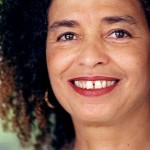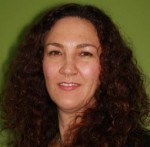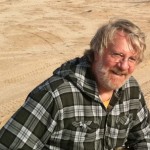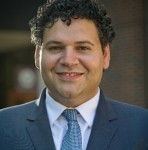Keynote Speakers

Through her activism and scholarship over many decades, Angela Davis has been deeply involved in movements for social justice around the world. Her work as an educator – both at the university level and in the larger public sphere – has always emphasized the importance of building communities of struggle for economic, racial, and gender justice.
Professor Davis’ teaching career has taken her to San Francisco State University, Mills College, and UC Berkeley. She also has taught at UCLA, Vassar, the Claremont Colleges, and Stanford University. Mostly recently she spent fifteen years at the University of California Santa Cruz where she is now Distinguished Professor Emerita of History of Consciousness – an interdisciplinary Ph.D program – and of Feminist Studies.
Angela Davis is the author of nine books and has lectured throughout the United States as well as in Europe, Africa, Asia, Australia, and South America. In recent years a persistent theme of her work has been the range of social problems associated with incarceration and the generalized criminalization of those communities that are most affected by poverty and racial discrimination. She draws upon her own experiences in the early seventies as a person who spent eighteen months in jail and on trial, after being placed on the FBI’s “Ten Most Wanted List.” She also has conducted extensive research on numerous issues related to race, gender and imprisonment. Her recent books include Abolition Democracy and Are Prisons Obsolete? about the abolition of the prison industrial complex, and a new edition of Narrative of the Life of Frederick Douglass. In 2012 she published a new collection of essays entitled The Meaning of Freedom.
Angela Davis is a founding member of Critical Resistance, a national organization dedicated to the dismantling of the prison industrial complex. Internationally, she is affiliated with Sisters Inside, an abolitionist organization based in Queensland, Australia that works in solidarity with women in prison.
Like many educators, Professor Davis is especially concerned with the general tendency to devote more resources and attention to the prison system than to educational institutions. Having helped to popularize the notion of a “prison industrial complex,” she now urges her audiences to think seriously about the future possibility of a world without prisons and to help forge a 21st century abolitionist movement.

Noura Erakat is a human rights attorney and writer. She is currently a Freedman Teaching Fellow at Temple University, Beasley School of Law and is a member of the Legal Support Network for the Badil Center for Palestinian Refugee and Residency Rights. She has taught International Human Rights Law and the Middle East at Georgetown University since Spring 2009. Most recently she served as Legal Counsel for a Congressional Subcommittee in the House of Representatives, chaired by Congressman Dennis J. Kucinich. She is a Co-Editor of Jadaliyya.com.
After completing law school, Noura received a New Voices Fellowship to join the US Campaign to End the Israeli Occupation as a National Grassroots Organizer where she helped seed and nurture BDS campaigns across university campuses, amongst faith-based institutions, and among grassroots community efforts. She has helped to initiate and organize several national formations including Arab Women Arising for Justice (AMWAJ) and the U.S. Palestinian Community Network (USPCN). She is a board member of the Institute for Policy Studies (IPS), the Trans-Arab Research Institute (TARI); a Policy Advisor of Al-Shabaka; a founding member of the DC Palestinian Film and Arts Festival; the development consultant for Legal Agenda; and a contributor to IntLawGrrls.
Noura has appeared on MSNBC’s “Up With Chris Hayes,” Fox’s “The O’ Reilly Factor,” NBC’s“Politically Incorrect,” Democracy Now, and Al-Jazeera Arabic and English. She has published in The Nation, Huffington Post, The Hill, Al Ahram English, the Los Angeles Review of Books, Al-Shabaka, Intlawgrrls, Jadaliyya, and The American Prospect. Her scholarly publications include: “Litigating the Arab-Israeli Conflict: The Politicization of U.S. Federal Courts” in the Berkeley Law Journal of Middle Eastern and Islamic Law, “Palestinian Refugees and the Syrian Uprising: Closing the Protection Gap During Secondary Forced Displacement” forthcoming in the Oxford Journal for International Refugee Law, and “New Imminence in the Time of Obama: The Impact of Targetted Killings on the Law of Self-Defense” forthcoming in the Arizona Law Review. In Fall 2013, Noura co-published an anthology with Mouin Rabbani titled, Aborted State? The UN Initiative and New Palestinian Junctures.
You can follow her on Twitter at @4noura.
 Savvina Chowdury (Moderator): Savvina Chowdhury teaches feminist economics and political economy at the Evergreen State College, in Olympia, Washington. She holds a Ph.D in Economics from the University of California, Riverside. Her dissertation, Everyday Economic Practices: The Hidden Transcripts of Egyptian Voices (published by Routledge in 2007) is based on her work with the United Nations Development Programme in Egypt. Born in Bangladesh, Savvina grew up in the Middle East, in Bahrain and Egypt. She came to the United States in 1991 and has since returned to the Middle East a number of times. Her research interests include working with local communities on participatory economic practices.
Savvina Chowdury (Moderator): Savvina Chowdhury teaches feminist economics and political economy at the Evergreen State College, in Olympia, Washington. She holds a Ph.D in Economics from the University of California, Riverside. Her dissertation, Everyday Economic Practices: The Hidden Transcripts of Egyptian Voices (published by Routledge in 2007) is based on her work with the United Nations Development Programme in Egypt. Born in Bangladesh, Savvina grew up in the Middle East, in Bahrain and Egypt. She came to the United States in 1991 and has since returned to the Middle East a number of times. Her research interests include working with local communities on participatory economic practices.
Conference Presenters
 Saed Bannoura: Saed Bannoura is a pioneering Palestinian journalist who helped implement the first up-to-the-minute English language news service operating from within the Occupied Palestinian Territories in 2003. The International Middle East Media Center (www.imemc.org) provides daily news articles and audio reports. His journalism experience dates back to 1989, when, as a 16-year old, he began a regular column reporting on the daily incidents of violence during the first Palestinian intifada (uprising). Despite being shot by the Israeli special forces in 1991 and confined to a wheelchair, he has continued his commitment to fair and accurate reporting of the Israel-Palestine conflict, with a focus on international audiences. He has reported extensively on the long-term hunger strikes of Palestinian prisoners and the conditions faced by detainees.
Saed Bannoura: Saed Bannoura is a pioneering Palestinian journalist who helped implement the first up-to-the-minute English language news service operating from within the Occupied Palestinian Territories in 2003. The International Middle East Media Center (www.imemc.org) provides daily news articles and audio reports. His journalism experience dates back to 1989, when, as a 16-year old, he began a regular column reporting on the daily incidents of violence during the first Palestinian intifada (uprising). Despite being shot by the Israeli special forces in 1991 and confined to a wheelchair, he has continued his commitment to fair and accurate reporting of the Israel-Palestine conflict, with a focus on international audiences. He has reported extensively on the long-term hunger strikes of Palestinian prisoners and the conditions faced by detainees.
 Danica Brown: Danica Brown is Choctaw of the White Crane clan and Scottish of the Ross clan. She is currently enrolled at Portland State University working a doctorate degree in Social Work with a focus in Indigenizing Social Work Practice. She was a member of the Denver/Boulder American Indian Movement and Red Earth Women’s Alliance, focusing her activism on Ending Colonial Legacies in the Americans. Currently she is a collective member of the PDX Anarchist Black Cross, focusing on Decolonizing the Prison Industrial Complex.
Danica Brown: Danica Brown is Choctaw of the White Crane clan and Scottish of the Ross clan. She is currently enrolled at Portland State University working a doctorate degree in Social Work with a focus in Indigenizing Social Work Practice. She was a member of the Denver/Boulder American Indian Movement and Red Earth Women’s Alliance, focusing her activism on Ending Colonial Legacies in the Americans. Currently she is a collective member of the PDX Anarchist Black Cross, focusing on Decolonizing the Prison Industrial Complex.
 Adam Carpinelli: Adam Carpinelli is an multi instrumentalist, activist scholar. He is the NW regional organizer for The Jericho Amnesty Movement for liberation of u.s.-held Political Prisoner’s and Prisoners of War. He is also an active member of the Leonard Peltier Offense Defense Committee (Portland, OR Chapter), Oregon Jericho, Portland Central America Solidarity Committee, Committee in Solidarity with the People of El Salvador, Portland Anarchist Black Cross, Portland IWW General Defense Committee and the Prison Pipeline Collective on KBOO community radio. He is the founder of the Law & Disorder Conference continuing to sit on the steering committee. Currently he sits on a Portland based Palestinian solidarity coalition of students and local activists as well as the steering committee on working on helping to organize the 2014 NW Regional U.S. Social Forum.
Adam Carpinelli: Adam Carpinelli is an multi instrumentalist, activist scholar. He is the NW regional organizer for The Jericho Amnesty Movement for liberation of u.s.-held Political Prisoner’s and Prisoners of War. He is also an active member of the Leonard Peltier Offense Defense Committee (Portland, OR Chapter), Oregon Jericho, Portland Central America Solidarity Committee, Committee in Solidarity with the People of El Salvador, Portland Anarchist Black Cross, Portland IWW General Defense Committee and the Prison Pipeline Collective on KBOO community radio. He is the founder of the Law & Disorder Conference continuing to sit on the steering committee. Currently he sits on a Portland based Palestinian solidarity coalition of students and local activists as well as the steering committee on working on helping to organize the 2014 NW Regional U.S. Social Forum.
 Ramzi Da’na: Ramzi Da’na grew up in Hebron, West Bank. During the first Intifada, he was imprisoned 4 times as a teenager and tortured by his captors. Ramzi immigrated to the US in 1993. He graduated from Evergreen State College in 1998 with an emphasis in social psychology and worked with juvenile detainees through the Gateways program. Since graduation, Ramzi has been a small business owner in Seattle, where he lives with his wife and two children. He returns to Hebron frequently to visit family and friends.
Ramzi Da’na: Ramzi Da’na grew up in Hebron, West Bank. During the first Intifada, he was imprisoned 4 times as a teenager and tortured by his captors. Ramzi immigrated to the US in 1993. He graduated from Evergreen State College in 1998 with an emphasis in social psychology and worked with juvenile detainees through the Gateways program. Since graduation, Ramzi has been a small business owner in Seattle, where he lives with his wife and two children. He returns to Hebron frequently to visit family and friends.
Karam Dana: Dr. Karam Dana is a Palestinian-American academic. He is an Assistant Professor of Middle East and Islamic Studies at the University of Washington Bothell. Prior to joining the faculty of the University of Washington, he held a post-doctoral fellowship at the Center for Middle Eastern Studies (2009-2010). He was an Associate at the Center for American Political Studies at Harvard University (2011-2012), a Research fellow at the Belfer Center for Science and International Affairs at the Harvard Kennedy School of Government (2010-2012), and a faculty member at the Fletcher School of Law and Diplomacy at Tufts University (2010-2012). His Middle East-related research explores elite politics in Palestinian society in the 1920s and 1930s, Palestinian public opinion, the intersection between economics and politics and the changing state-society relations in the Arab Middle East. Dana is the co-principal investigator of the Muslim American Public Opinion Survey (MAPOS). Dana is the Director of the Middle East Public Opinion Project (MEPOP) and the Director of the American Muslim Research Initiative (AMRI), both projects housed at the University of Washington Bothell.
 Larry Jefferson: Larry Jefferson has been a career public defender who represents clients charged with serious felony offenses since 1996. Larry graduated from Evergreen State College in 1991. He obtained his J.D. from University of Puget Sound Law School (now Seattle University Law School) in 1994. He has worked in King County and Thurston County as a public defender representing clients charged with serious offenses, such as, murder, sex and three strikes cases. Larry currently is President of Thurston County Bar Association and is Board member for the Washington Association of Criminal Defense Lawyers. Larry is a devoted husband, father of two wonderful children and a self proclaimed mama’s boy. In his free time he enjoys spending time with his barbecue (her name is Nexie) and cheering for the Seahawks.
Larry Jefferson: Larry Jefferson has been a career public defender who represents clients charged with serious felony offenses since 1996. Larry graduated from Evergreen State College in 1991. He obtained his J.D. from University of Puget Sound Law School (now Seattle University Law School) in 1994. He has worked in King County and Thurston County as a public defender representing clients charged with serious offenses, such as, murder, sex and three strikes cases. Larry currently is President of Thurston County Bar Association and is Board member for the Washington Association of Criminal Defense Lawyers. Larry is a devoted husband, father of two wonderful children and a self proclaimed mama’s boy. In his free time he enjoys spending time with his barbecue (her name is Nexie) and cheering for the Seahawks.
 Ed Mead: Ed Mead is a former member of the George Jackson Brigade (GJB); a revolutionary underground group that was based in the NW. He served 18 years for GJB related activities and was the organizer of Men Against Sexism at the Washington State Penitentiary at Walla Walla—a group to put an end to prisoner-on-prisoner rape and the buying and selling of weaker prisoners. He continues to organize around prison justice issues mainly focusing on hunger strikes such as the Pelican Bay Prisoner hunger and work strike that started in 2011. He also maintains several publications that go directly into the prisons as well as prisonart.org.
Ed Mead: Ed Mead is a former member of the George Jackson Brigade (GJB); a revolutionary underground group that was based in the NW. He served 18 years for GJB related activities and was the organizer of Men Against Sexism at the Washington State Penitentiary at Walla Walla—a group to put an end to prisoner-on-prisoner rape and the buying and selling of weaker prisoners. He continues to organize around prison justice issues mainly focusing on hunger strikes such as the Pelican Bay Prisoner hunger and work strike that started in 2011. He also maintains several publications that go directly into the prisons as well as prisonart.org.
 Elizabeth Moore: Elizabeth Moore began organizing and taking direct action in the third grade when she attempted to liberate three lobsters from a seafood restaurant tank … Since then Elizabeth has been thinking critically about the incarceration and imprisonment of all living things. She has spent time in the West Bank doing solidarity work, and locally, she works with the Jewish Voice for Peace and the Rachel Corrie Foundation. Elizabeth will graduate from TESC this spring, where she studied political economy and coordinated the Students for Justice in Palestine student group.
Elizabeth Moore: Elizabeth Moore began organizing and taking direct action in the third grade when she attempted to liberate three lobsters from a seafood restaurant tank … Since then Elizabeth has been thinking critically about the incarceration and imprisonment of all living things. She has spent time in the West Bank doing solidarity work, and locally, she works with the Jewish Voice for Peace and the Rachel Corrie Foundation. Elizabeth will graduate from TESC this spring, where she studied political economy and coordinated the Students for Justice in Palestine student group.
 Steve Niva: Steve Niva teaches International Politics and Middle East Studies at the Evergreen State College in Olympia, Washington. His primary areas of research and writing include the Israeli-Palestinian conflict; U.S. foreign policy in the Middle East; Islamist movements; and contemporary war and violence. He has written for and served on the editorial board of Middle East Reportmagazine (www.merip.org), and his recent writings have also appeared in Security Dialogue, Foreign Policy in Focus, Peace Review, Middle East International, The Seattle Times, Open Democracy, and Counterpunch, among others.
Steve Niva: Steve Niva teaches International Politics and Middle East Studies at the Evergreen State College in Olympia, Washington. His primary areas of research and writing include the Israeli-Palestinian conflict; U.S. foreign policy in the Middle East; Islamist movements; and contemporary war and violence. He has written for and served on the editorial board of Middle East Reportmagazine (www.merip.org), and his recent writings have also appeared in Security Dialogue, Foreign Policy in Focus, Peace Review, Middle East International, The Seattle Times, Open Democracy, and Counterpunch, among others.
 Amin Odeh: Amin Odeh was born and raised in a refugee camp near Bethlehem in Occupied Palestine. While living in Palestine, he was detained many times by the Israeli army for resisting the Occupation and he spent months in Israeli military prisons. Amin came to the U.S when he was in his early twenties to continue his education. After coming to the U.S., he continued to advocate on behalf of the Palestinian people. In the year 2000, he and other Palestinian community members in Seattle founded the group Voices of Palestine. The group’s main objective is to educate the public about the Palestinian struggle for freedom and Justice. Amin also serves as the Chairman for the Arab American Community Coalition in Seattle.
Amin Odeh: Amin Odeh was born and raised in a refugee camp near Bethlehem in Occupied Palestine. While living in Palestine, he was detained many times by the Israeli army for resisting the Occupation and he spent months in Israeli military prisons. Amin came to the U.S when he was in his early twenties to continue his education. After coming to the U.S., he continued to advocate on behalf of the Palestinian people. In the year 2000, he and other Palestinian community members in Seattle founded the group Voices of Palestine. The group’s main objective is to educate the public about the Palestinian struggle for freedom and Justice. Amin also serves as the Chairman for the Arab American Community Coalition in Seattle.
 Therese Saliba: Therese Saliba is faculty of third world feminist studies at Evergreen State College, Washington, and former Fulbright scholar in Palestine. She is co-¬editor of two collections, Gender, Politics and Islam (Univ. Chicago Press, 2002) and Intersections: Gender, Nation and Community in Arab Women’s Novels (Syracuse University Press, 2002). Her essays on Arab and Palestinian feminisms, postcolonial literature, media representations, and Arab American experience have appeared in numerous journals and collections. Saliba is also former associate editor of Signs: Journal of Women in Culture and Society and the online Brill Encyclopedia of Women and Islamic Cultures, where she serves on the International Advisory Board.
Therese Saliba: Therese Saliba is faculty of third world feminist studies at Evergreen State College, Washington, and former Fulbright scholar in Palestine. She is co-¬editor of two collections, Gender, Politics and Islam (Univ. Chicago Press, 2002) and Intersections: Gender, Nation and Community in Arab Women’s Novels (Syracuse University Press, 2002). Her essays on Arab and Palestinian feminisms, postcolonial literature, media representations, and Arab American experience have appeared in numerous journals and collections. Saliba is also former associate editor of Signs: Journal of Women in Culture and Society and the online Brill Encyclopedia of Women and Islamic Cultures, where she serves on the International Advisory Board.
 Sara Shourd: Sarah Shourd is an author, Contributing Editor at Solitary Watch and UC Berkeley Visiting Scholar currently based in Oakland, California. From 2009 to 2010 Sarah was held a political hostage by the Iranian Government. She was captured, along with her two companions, while hiking near an unmarked border in semi-autonomous Iraqi Kurdistan. Sarah was then held in arbitrary, incommunicado, solitary detention for 410 days.
Upon her release, Sarah worked tirelessly for the release of her fiancé and friend.
Sara Shourd: Sarah Shourd is an author, Contributing Editor at Solitary Watch and UC Berkeley Visiting Scholar currently based in Oakland, California. From 2009 to 2010 Sarah was held a political hostage by the Iranian Government. She was captured, along with her two companions, while hiking near an unmarked border in semi-autonomous Iraqi Kurdistan. Sarah was then held in arbitrary, incommunicado, solitary detention for 410 days.
Upon her release, Sarah worked tirelessly for the release of her fiancé and friend.
From 2001 to 2005, Sarah did international solidarity work with the Zapatista indigenous movement in Chiapas, Mexico; she organized with mothers from Juarez, Mexico who lost their daughters in a spree of unsolved murders many have coined “femicide” and then spent a year living in a Palestinian refugee camp in the outskirts of Damascus, teaching for the Iraqi Student Project. Since her wrongful imprisonment, Sarah has become an advocate for prisoner’s rights—focusing her writing, speaking and theatre projects on the widespread use of prolonged solitary confinement in U.S. prisons. She’s written for The New York Times, SF Chronicle, CNN, Newsweek and her blog on Huffington Post. She co-authored a memoir with Shane Bauer and Josh Fattal: A Sliver of Light: Three Americans Imprisoned in Iran, published by Houghton-Mifflin Harcourt. sarahshourd.com
 Naomi Tajchman-Kaplan: Naomi Tajchman-Kaplan is an Evergreen Alumni and currently serves as the Academic Program Coordinator for Gateways for Incarcerated Youth. Over the past 4 years she has worked to cultivate a space where incarcerated youth and community members are seen, heard, and valued. Through AMP she strives to facilitate youth leadership as well as create opportunities and access through popular education methods. Naomi is not an expert is anything but her own experiences and doesn’t take herself nearly as seriously as this bio suggests.
Naomi Tajchman-Kaplan: Naomi Tajchman-Kaplan is an Evergreen Alumni and currently serves as the Academic Program Coordinator for Gateways for Incarcerated Youth. Over the past 4 years she has worked to cultivate a space where incarcerated youth and community members are seen, heard, and valued. Through AMP she strives to facilitate youth leadership as well as create opportunities and access through popular education methods. Naomi is not an expert is anything but her own experiences and doesn’t take herself nearly as seriously as this bio suggests.
 Mohammed Usrof: Mohammed Nabil Usrof was born and raised in Khan Younis, a city in the Gaza Strip, in Palestine. Usrof received a Bachelors Degree in Counseling and Guidance from Al-Aqsa University, Gaza in 2012, after which he moved to Portland, Oregon to attend the Pacific Northwest College of Art, where he is currently a candidate in the Masters in Critical Theory and Creative Research Program. His thesis, SENSE-ABLED: TOWARDS A RELATIONAL AESTHETICS OF TOUCH, combines research guided by Relational Aesthetics with a focus in education and psychology. The political, psycho-social, economic, and cultural conditions he experienced in Gaza, as well as his personal experience with blindness, have also inspired his current work, which examines the positive aspects of vision and hearing impairment. He is active in Palestine solidarity work on campus and is a volunteer at KBOO community radio and the Museum of Contemporary Craft in Portland.
Mohammed Usrof: Mohammed Nabil Usrof was born and raised in Khan Younis, a city in the Gaza Strip, in Palestine. Usrof received a Bachelors Degree in Counseling and Guidance from Al-Aqsa University, Gaza in 2012, after which he moved to Portland, Oregon to attend the Pacific Northwest College of Art, where he is currently a candidate in the Masters in Critical Theory and Creative Research Program. His thesis, SENSE-ABLED: TOWARDS A RELATIONAL AESTHETICS OF TOUCH, combines research guided by Relational Aesthetics with a focus in education and psychology. The political, psycho-social, economic, and cultural conditions he experienced in Gaza, as well as his personal experience with blindness, have also inspired his current work, which examines the positive aspects of vision and hearing impairment. He is active in Palestine solidarity work on campus and is a volunteer at KBOO community radio and the Museum of Contemporary Craft in Portland.
Maru Mora Villalpando: Maru Mora Villalpando is a trainer, political analyst for local Latino media outlets, speaker, and panelist on immigrant rights. She recently coordinated a Latino voter registration in three counties, and help lead an educational campaign for equal marriage for gay and lesbian Latino couples as well as doing outreach for the Latino community in support of Referendum 74, and coordinated a statewide coalition working to introduce the Washington Trust Act to reduce deportation by stopping ICE holders in local jails. Maru Mora Villalpando has focused her efforts this year in stopping deportations by helping organize and participating in a civil disobedience action outside the NW Detention Center in Tacoma, WA last February, and currently supporting the hunger strike of immigrant detainees to stop deportations and demanding better conditions at the privately run facility NWDC, and the most recent one in Conroe TX, Joe Corley Detention Center.







